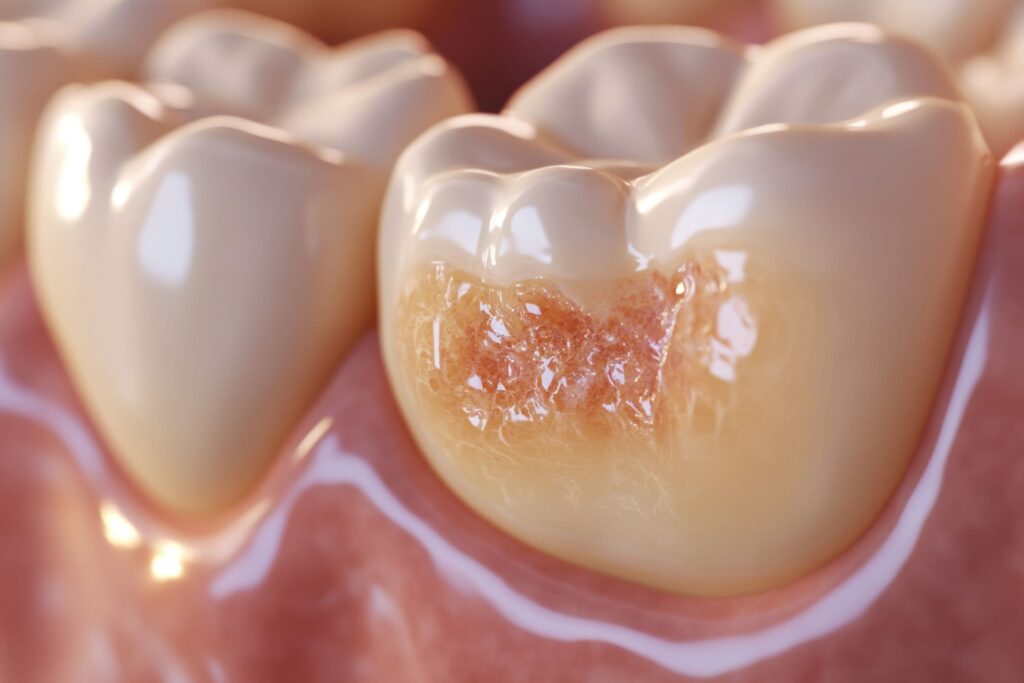
Have you noticed that your tongue feels scratchy against the surface of your teeth or that they appear coarser than usual? While this can occur for a few different reasons, like a buildup of plaque, one of the most common culprits is unevenly eroded enamel.
This protective substance comprises the outer layer of your natural teeth to prevent cavities. If it’s thinning in certain areas, it’s essential to treat the underlying issue sooner rather than later to safeguard your smile. With that in mind, continue reading to learn more about three factors that can contribute to “rough teeth” and how your dentist can help!
Cause #1: Consuming Citrus
When it comes to dental health, pH values play a critical role. Human saliva typically falls between 6.7 and 7.4 on the scale. Therefore, anything with a level of 5.5 or lower is considered too acidic to be good for your teeth.
If you eat a lot of citrus fruits or drink beverages with high citric acid content, you’re likely to erode your enamel. Although they contain vitamin C to support strong gums, it’s possible to have too much of a good thing. Citrus like oranges, grapefruit, and lime have pH values 3.9 or lower, and the levels only grow more acidic as the fruit ages.
Cause #2: Drinking Soda
Sugary sodas are another popular drink that might please your taste buds but harm your oral health. Unfortunately, acid-producing bacteria are attracted to sugar, and many popular brands contain anywhere from 27 to 77 grams per can. It’s been estimated that, on average, each sip results in a renewed acid attack that lasts for about 20 minutes.
To preserve your dental well-being, try to cut down on how many sodas you drink. For example, instead of having one daily, limit your consumption to one to two per week.
Cause #3: Acid Reflux
Sometimes, the substance that’s harming your teeth isn’t necessarily coming from outside sources. People who suffer from frequent or chronic acid reflux might also notice that their pearly whites have begun to feel more prickly than usual. This condition occurs when your esophageal sphincter allows partially digested food and stomach acid back up into the esophagus after eating. This can result in nausea and regurgitation, which can affect your teeth and your general health.
If you’re still unsure why your teeth have developed an unpleasant texture, the best way to find out is to schedule an appointment with your dentist. You might need a topical fluoride treatment or other appropriate solution to restore your thinning enamel and keep tooth decay at bay!
About the Author
Dr. Sarah Yarnell enjoys helping patients feel their best by improving their dental condition. She earned her Doctor of Dental Surgery from the University of Tennessee Health Science Center in Memphis and is a valued member of the American Dental Association and several other professional organizations. She combines a caring and compassionate approach with state-of-the-art technology to increase patient comfort and enhance the accuracy of treatment results. If you’re worried about tooth decay, you can request an appointment on the website or call (870) 932-8488.
